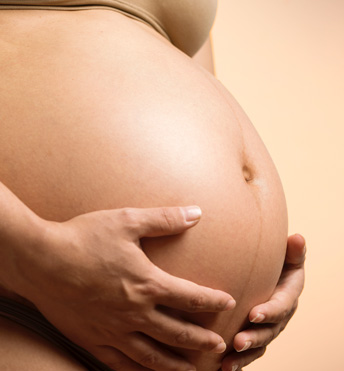 Cesarean sections can be a life-saving procedure for mother, baby or both. However, there are many reasons why vaginal birth is preferable when possible. More and more women are able to successfully give birth naturally after a cesarean (VBAC), however, there are many factors that go into calculating the odds of success.
Cesarean sections can be a life-saving procedure for mother, baby or both. However, there are many reasons why vaginal birth is preferable when possible. More and more women are able to successfully give birth naturally after a cesarean (VBAC), however, there are many factors that go into calculating the odds of success.
Benefits and Risks of Vaginal Birth After Cesarean
C-sections account for almost a third of all first births in the United States. The success rate of VBACs is between 60 to 80 percent. VBAC often carries fewer risks than a repeat cesarean and can offer a shorter recovery time and hospital stay, and a higher chance of successful breastfeeding. If you plan on having more children, being able to have a successful VBAC will also decrease your risks of placental problems associated with multiple c-sections.
However, a failed trial of labor that results in an emergency c-section is often riskier than a repeat planned c-section. Emergency c-sections carry a risk of uterine rupture, which can be life-threatening. The risk is low, occurring in about 1% of women attempting a vaginal birth after cesarean.
Deciding if Vaginal Delivery Is Right For You
If you are interested in attempting a vaginal birth after cesarean, the conversation should begin with your ObGyn. Risks vary between individuals so before making any decisions, you should talk to your care provider to assess your specific risks to make an informed decision. Successfully having a VBAC depends heavily on the reason for your initial c-section.
Your chance of successful VBAC improves significantly if you’ve had a least one vaginal birth before your cesarean, it’s been over 18 months since your c-section and if you have no obstetric problems such as placenta previa or fibroids that could make vaginal delivery risky. Your chance of VBAC success may be lower if you are over 34 years old, you are overweight, your baby is large, and if you go over 40 weeks.
Preparing for a VBAC
There are several ways to increase your chances of successful VBAC. Generally, the healthier you are, the greater your odds of a vaginal delivery.
First, you need to be vigilant about weight management. Big babies tend to have long labors, increasing the risk of cesarean. Achieving a healthy weight gain and eating healthy can help you avoid gestational diabetes and keep your baby’s growth on track. When you are preparing for a VBAC, it is also important to have an accurate due date so that size predictions are reliable. An early ultrasound is the best way to determine an accurate date of conception and due date.
It’s important to keep your blood pressure down. High blood pressure, or hypertension, can increase your chance of c-section. Keeping active and getting exercise each day can help keep blood pressure down.
Exercise can also help decrease stress. Was fear a factor that led to your first c-section? Try relaxation techniques, that can help you stay calm during labor. It’s important to be patient and release expectations. The calmer you are, the less likely you will have a long labor and the more likely you will achieve a VBAC.
Preparing for VBAC During Labor
It is important to try to avoid induction, if possible. Induction increases your risk of a c-section. Let your body move at its own pace unless there is a medical necessity.
At Kansas City ObGyn we support VBACs. Having a doctor that is supportive of your decision is a key to success. This email address is being protected from spambots. You need JavaScript enabled to view it. today or call (913) 439-3728 to schedule an appointment to discuss your VBAC.
Dr. Meghan A. Nichols, MD is a physician at Kansas City ObGyn. She graduated from the University of Missouri - Kansas City accelerated undergraduate and medical school program, then completed a four-year Ob/Gyn residency. Dr. Nichols is married with two children.






